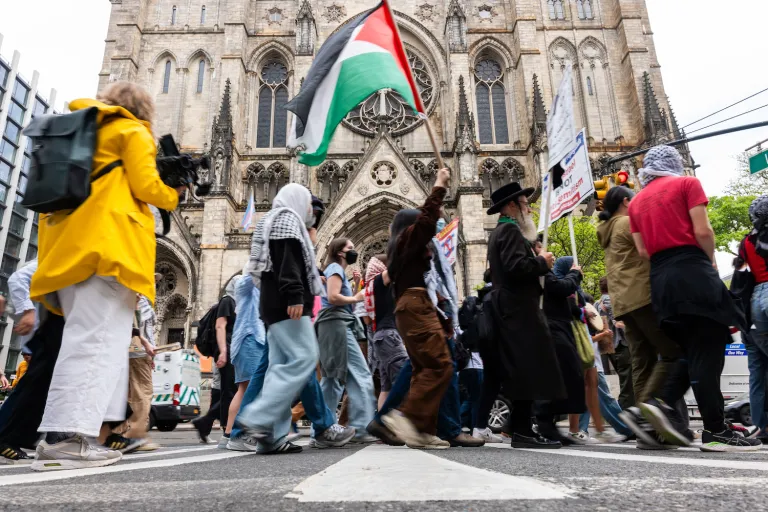College campuses across the nation are seeing a surge of heated protests as tensions escalate between Israel and Palestine in the Middle East. Students are rallying to support their side, turning campuses into battlegrounds. With emotions running high and political stakes rising, almost everyone at a campus is being impacted by these clashes.
“I think college students tend to have a little bit more time to protest. Their whole life is on a college campus. Also, their university is part of their identity, so when the university does something they don’t agree with, they try to step in,” Oakdale social studies teacher Ms. Katelyn Habina explained.
Universities are able to support Israel by funneling money into their military through donations, investments towards unrelated businesses that give to Israel, and investments towards Israeli businesses. Students who oppose Israel’s actions in the war aim to persuade their schools to cut financial ties with Israel and its supporters.
On April 30th, Brown University agreed to let students present a proposal to the corporation that runs the school to reduce their investments into companies supporting Israel, in exchange for protesters to end their encampment on campus. Northwestern University has offered to disclose their investment exposure towards Israel, however many doubt that the university will take further action.
Many universities have made controversial decisions following protests. Richard Heyman, a lecturer at the University of Texas at Austin, was fired for getting in the face of state troopers and yelling profanity at them during a pro-Palestine rally. This is one of many instances of faculty members being disciplined for being involved in demonstrations. On May 1st, Annelise Orleck, a professor of Jewish Studies at Dartmouth was shoved to the ground and arrested after confronting police officers who were trying to subdue her students.
“It would depend on what’s in their contract. If they knew going in that they would face disciplinary action, then it would make sense. I think it’s a bit unfair if there’s nothing in their contract that mentions being involved in these sorts of things,” Habina voiced when discussing the fairness of staff members being punished.
“I don’t think it’s fair, especially if they aren’t aware that they’ll be disciplined before participating. And if students don’t face discipline, then faculty shouldn’t,” junior Laurel Sutherin added.
The main concern is with consequences towards students who are uninvolved. For instance, individuals who are making their way to class have been confronted by protesters. A well known incident occurred on April 29th at the University of California, Los Angeles, when a student wearing a Star of David necklace was blocked from attending class by pro-Palestine protesters.
One of the most terrible effects is the cancellation of graduation ceremonies by numerous colleges. On May 7th, Columbia University announced plans to cancel the university-wide ceremony due to security concerns. Columbia had previously faced controversy after calling in a large police presence on pro-Palestine protests on April 30th. This was the largest mass arrest of students on the campus since 1968. Such events may heavily discourage current high school students from attending colleges with high protest activity.
“I’ve seen videos of protesters blocking other students from getting to class and stuff, and it scares me that even though I might not be participating in protests, I’ll still be confronted,” Sutherin admitted. “Graduation has been affected by the protests, and I think that’s unfair,” she later remarked.
The struggle between Israel and Palestine has intensified, igniting passionate protests and fierce debates among college students. As the situation in the Middle East unfolds, consequences have hit campuses hard, sparking fear in bystanders and incoming students. While demonstrations have provoked change, they’ve brought upon harsh outcomes that are hurting those who stand by or seek resolution.































